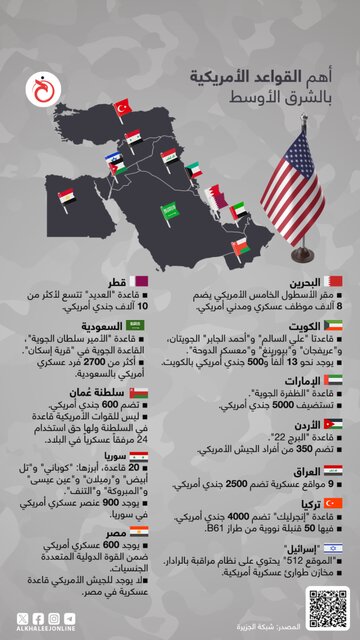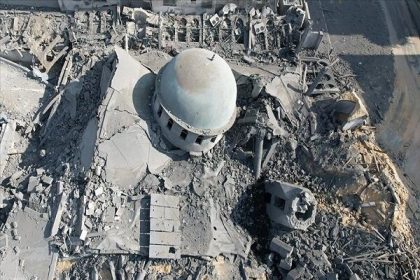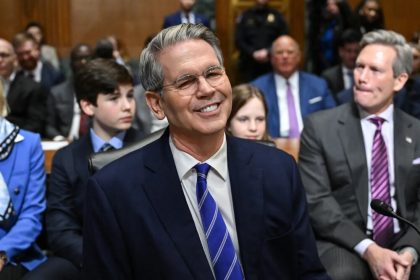The huge cost of the US deployment in the region is a source of controversy in Congress
An Arab-language media revealed that the huge cost of the US military deployment in the West Asia region is one of the most prominent issues that has created wide-ranging discussions and controversies inside and outside the US, especially in the country’s Congress.
According to RCO News Agency, “Al-Khalij Online” website reported about this: Washington has been paying a lot of attention to maintaining its military influence in the Middle East region for several decades; A region that has witnessed continuous conflicts and tensions.
According to this report, this American insistence is for economic reasons related to natural resources such as oil and gas, as well as strategic reasons under the pretext of establishing stability in the region and “fighting terrorism”.
The tense security situation in the region, especially with the continuation of the Zionist regime’s war against Gaza and southern Lebanon, forced America to increase its military presence in the region, and Washington quickly sent its destroyers to the region to support its ally.
As time passes and after a year of military deployment, questions and concerns have arisen among members of Congress and the Pentagon about the financial cost of the deployment if the conflict continues for much longer.
Today, following the developments in the region, the pressure on the American army has increased significantly since mid-September and after the intensification of the Zionist regime’s attacks on Lebanon in the most severe wave of tension escalation in the last 20 years.
The most important American bases in the region
For this purpose, US Secretary of Defense Lloyd Austin had previously issued orders to send additional auxiliary forces to the region, which brought the total number of troops stationed in the region to more than 40,000 soldiers, which is about 6,000 more than the usual number, and it is expected that Another aircraft carrier will be sent to the area soon.
However, according to Defense News, the cost of this deployment is becoming increasingly apparent, especially given the US military’s ability to anticipate future needs.
This American website reported that if the Pentagon decides to send more troops to the Middle East, it will face the challenge of “more costs to prevent more casualties”.
The website specializing in military affairs further wrote: The US government is endangering the safety of sailors and ships that cost billions of dollars. The US Navy also estimates that it used $1.16 billion worth of ammunition in the Red Sea from October 7 to mid-July.
According to Politico, the Pentagon initially expected to spend about $2.2 billion at the beginning of this year to maintain the operation in the Middle East for a full year, including $47.2 million for military personnel, $940.7 million. For operations and maintenance, $531.4 million is for procurement, $96.1 million is for research, development, testing and evaluation, and $549.8 million is for transportation.
Last April, Congress approved a $95 billion increase in the Pentagon’s budget, in addition to allocating an additional $2.44 billion to Central Command (CENTCOM). This funding was only allocated for a period of six months, which can now be said to be almost over.

Centcom forces
In this regard, a number of congressional staff have announced that the budget for the upcoming period will be similar to what was approved in April; That is, it is estimated to be around 2 to 3 billion dollars.
In this regard, Defense News reported, quoting an unnamed senior congressional aide: “We have fallen into this endless quagmire and have had to allocate more resources, and because of this, we are being exhausted.”
Purpose of establishment
In this regard, Bashar Fathi Al-Akeidi, a professor of political history, told Al-Khalij Online: America’s presence in the region through established military bases is a safety valve for governments that deal with and adhere to agreements and treaties with Washington. Therefore, most of these governments reject the withdrawal of America from the region.
He said that Washington puts its own interests at the top of its goals, and when a country or a president loyal to it is under threat, America’s action against it primarily depends on what its interests require, and this is what it is. It happened in the “Arab Spring” and we witnessed the end of the era of many heads of countries who had strong relations with Washington, but America did not support them.
Al-Akeidi added: American policy considers its presence in the region inevitable for several reasons, the most important of which is the presence of “Israel” and the need to protect it and ensure the continued flow of oil from the region to its own market and the world markets in general.
He also stated: It is believed that the US military presence in the region increases tensions, especially that Washington does not deal with regional issues impartially; Because the roots of the region’s crises go back to it, and in this way, without finding a solution to those problems, it tries to maintain its military and political presence in the region.
end of message
RCO NEWS
RCO


















